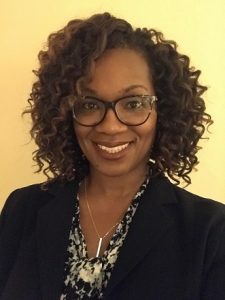
Kwanzaa Reflection
Created in the wake of the 1965 Watts (California) Riots, Kwanzaa is observed by many in the African American community and African diaspora December 26 through January 1.
Both the name and the celebration were created in 1966 by Maulana Karenga, a professor of Africana studies at California State University in Long Beach. Karenga borrowed the word Kwanza, meaning “first,” from the Swahili phrase matunda.
Each of the days of the celebration is dedicated to one of the Seven Principles, with family members coming together each day to light one of the candles in the kinara, or candleholder, and to discuss the principle for the day.
Renee Thompson, director, Patient Access Services, Houston Methodist West, and vice president of the Black Ties for Culture employee resource group (ERG), shares her thoughts on the significance of the holiday.
“I never celebrated Kwanzaa while growing up in Michigan. In fact, I knew little more about the holiday than that it was something that “Black people” celebrated around the time of Christmas. I suspect there are many others who have a similar memory. After all, Kwanzaa was created a mere 56 years ago.
“As my experiences and cultural exposure matured over the years, so has my knowledge and appreciation for the principles of Kwanzaa. Created in response to the 1965 Watts Riots, at its core, Kwanzaa is about bringing African Americans together, celebrating community, and connecting the past and present while honoring African heritage.
“As someone who has found myself more disheartened by the commercialization and increasingly materialistic focus surrounding so many holidays, the core principles of Kwanzaa resonate with many of my personal beliefs and hopes for the African American community: umoja (unity), kujichagulia (self-determination), ujima (collective work and responsibility), ujamaa (cooperative economics), nia (purpose), kuumba (creativity) and imani (faith).
“Although I have not gone so far as to purchase the seven candles or the kinara (candleholder) that are customary to Kwanzaa celebrations, I think this year I will spend time in personal reflection on the Seven Principles when Kwanzaa starts.”

Young Professionals ERG Launches
The Office of DEI is excited to announce the creation of the Young Professionals employee resource group (ERG)! The 10th Houston Methodist ERG, Young Professionals’ mission is to “support the development of personal and professional skills and reinforce HM standards and values among our young professionals by increasing networking opportunities between peers and leaders and investing in current employees that seek to grow within the organization.” A “young professional” is a talented and enthusiastic individual in the early stages of their career (within two years of beginning their role/title) who is seeking resources, tools and a network for professional development. The ERG seeks to provide opportunities to apply leadership skills, as well as a platform to access the resources and mentors available at Houston Methodist and support the growth and education of all health care professionals. As with all our ERGs, any employee may join an ERG they identify with or would like to learn more about or support. Please email YoungProfessionals@houstonmethodist.org to join or learn more.
DEI Training Sessions Offer CME and Ethics Accreditation
The current training sessions offered by the Office of DEI—Together We Grow, Managing Unconscious Bias, Navigating Multigenerational Teams and Recognizing the Impact of Microaggressions—offer AMA PRA Category 1 Credit(s)™ and ethics credit per attended sessions.
The trainings help to further your knowledge and understanding of diversity, equity and inclusion topics that can enhance relationships with co-workers, patients and guests. Sessions are available virtually or in-person. Register for the trainings by visiting the LMS and searching “DEI.” To schedule a session for your group, contact Kamali Archer at Karcher@houstonmethodist.org.

Leave a Reply